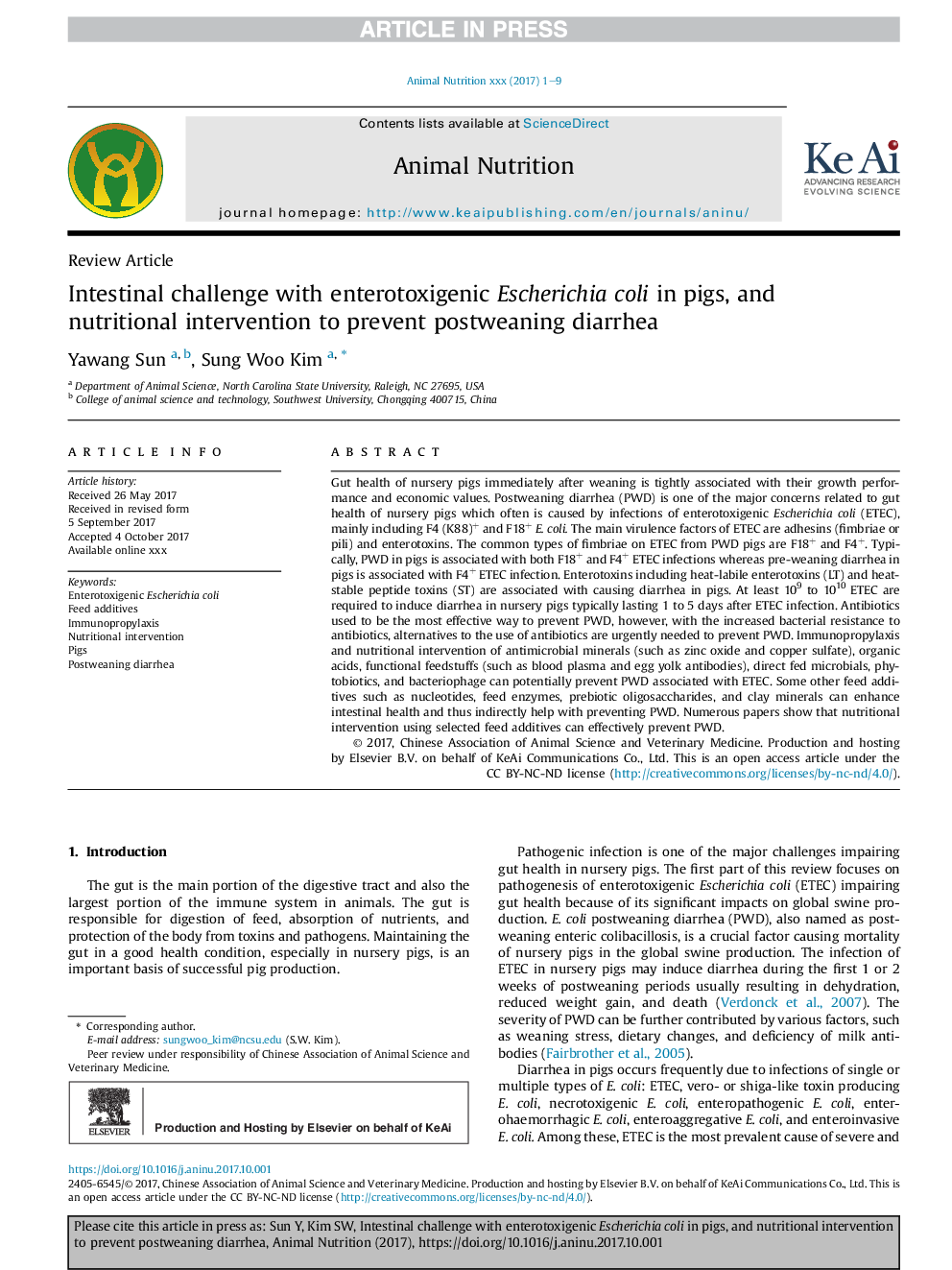| کد مقاله | کد نشریه | سال انتشار | مقاله انگلیسی | نسخه تمام متن |
|---|---|---|---|---|
| 8882528 | 1625234 | 2017 | 9 صفحه PDF | دانلود رایگان |
عنوان انگلیسی مقاله ISI
Intestinal challenge with enterotoxigenic Escherichia coli in pigs, and nutritional intervention to prevent postweaning diarrhea
دانلود مقاله + سفارش ترجمه
دانلود مقاله ISI انگلیسی
رایگان برای ایرانیان
کلمات کلیدی
موضوعات مرتبط
علوم زیستی و بیوفناوری
علوم کشاورزی و بیولوژیک
علوم دامی و جانورشناسی
پیش نمایش صفحه اول مقاله

چکیده انگلیسی
Gut health of nursery pigs immediately after weaning is tightly associated with their growth performance and economic values. Postweaning diarrhea (PWD) is one of the major concerns related to gut health of nursery pigs which often is caused by infections of enterotoxigenic Escherichia coli (ETEC), mainly including F4 (K88)+ and F18+E. coli. The main virulence factors of ETEC are adhesins (fimbriae or pili) and enterotoxins. The common types of fimbriae on ETEC from PWD pigs are F18+ and F4+. Typically, PWD in pigs is associated with both F18+ and F4+ ETEC infections whereas pre-weaning diarrhea in pigs is associated with F4+ ETEC infection. Enterotoxins including heat-labile enterotoxins (LT) and heat-stable peptide toxins (ST) are associated with causing diarrhea in pigs. At least 109 to 1010 ETEC are required to induce diarrhea in nursery pigs typically lasting 1 to 5 days after ETEC infection. Antibiotics used to be the most effective way to prevent PWD, however, with the increased bacterial resistance to antibiotics, alternatives to the use of antibiotics are urgently needed to prevent PWD. Immunopropylaxis and nutritional intervention of antimicrobial minerals (such as zinc oxide and copper sulfate), organic acids, functional feedstuffs (such as blood plasma and egg yolk antibodies), direct fed microbials, phytobiotics, and bacteriophage can potentially prevent PWD associated with ETEC. Some other feed additives such as nucleotides, feed enzymes, prebiotic oligosaccharides, and clay minerals can enhance intestinal health and thus indirectly help with preventing PWD. Numerous papers show that nutritional intervention using selected feed additives can effectively prevent PWD.
ناشر
Database: Elsevier - ScienceDirect (ساینس دایرکت)
Journal: Animal Nutrition - Volume 3, Issue 4, December 2017, Pages 322-330
Journal: Animal Nutrition - Volume 3, Issue 4, December 2017, Pages 322-330
نویسندگان
Yawang Sun, Sung Woo Kim,